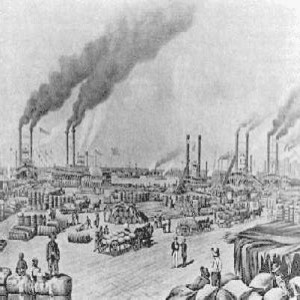
On this day in labor history, the year was 1877.
That was the day Louisville sewer workers walked off the job.
The Daily American reported that, “hundreds of black sewer-men stopped work, and began marching through the streets, armed with picks and shovels.”
They went from one sewer construction site to the next, calling workers out to strike for higher wages.
The Great Railroad Strike of 1877 had clearly impacted workers in Mid-Southern cities like Memphis, Nashville and Louisville.
Historian Steven J. Hoffman observes these workers were able to capitalize on strike threats to advance their demands. Railroad bosses for the Louisville, Nashville & Great Southern had rescinded pay cuts for mechanics and engineers.
But they had not raised wages for the lowest paid laborers.
Those laborers joined sewer workers in their march through the city.
By nightfall, the mass of integrated strikers marched to the L&N depot, clashing with police.
Some broke off to march to the Short-Line Depot, smashing windows of the mayor’s house on their way.
Though the crowd was largely dispersed by early morning, Louisville was now in the midst of a general strike.
Hoffman describes the scene: “workers at the metal shops and foundries downtown struck for higher wages.
There were reported strikes at the Kentucky lead and oil works, all the downtown furniture factories, woolen mills, horse collar makers, and tobacco factories as well as by many of the city’s coopers, brick makers and African-American levee workers.
Many of the demands of these workers, which tended to focus on wages and hours, were met and they returned to work quickly.”
Though Southern cites avoided railroad strikes, for the most part, they could not evade the Great Strike’s impact on other sectors of the workforce.
More Episodes
 2024-10-21
2024-10-21
 2024-10-18
2024-10-18
 2024-10-17
2024-10-17
 2024-10-16
2024-10-16
 2024-10-15
2024-10-15
 2024-10-14
2024-10-14
 2024-10-14
2024-10-14
 2024-10-10
2024-10-10
 2024-10-09
2024-10-09
 2024-10-08
2024-10-08
 2024-10-07
2024-10-07
 2024-10-06
2024-10-06
 2024-10-06
2024-10-06
Create your
podcast in
minutes
- Full-featured podcast site
- Unlimited storage and bandwidth
- Comprehensive podcast stats
- Distribute to Apple Podcasts, Spotify, and more
- Make money with your podcast
It is Free
- Privacy Policy
- Cookie Policy
- Terms of Use
- Consent Preferences
- Copyright © 2015-2024 Podbean.com




